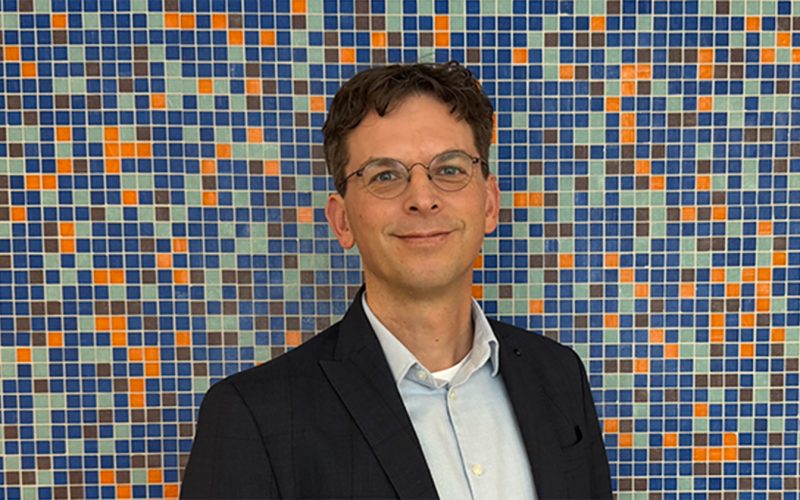“Adults sleep mainly to recover, but for babies, sleep is so much more,” says neonatologist Jeroen Dudink. “In the earliest stages of life, sleep is an activity during which the brain develops and all kinds of connections are formed in the brain.” Jeroen has been appointed professor of Neonatal Brain Development and Sleep, in November 2025.
Is it the job he always dreamed of? Yes! Jeroen Dudink has made it his mission to give sleep a structural place in the hospital. This new chair builds on the knowledge and tools to achieve that. Jeroen can strengthen the cooperation between different healthcare professionals and researchers in the field of sleep and brain maturation. He focuses on the long-term outcomes for newborn babies at high risk of atypical development.
“With my research team, I want to reliably measure the behaviour of newborns and translate this into care choices that help vulnerable babies now and, in the future,” he explains. “Together with healthcare professionals and parents, we are making sleep optimisation part of standard care for these children.”
“For newborns, sleep not only contributes to recovery, but it also actively guides brain development,” says Jeroen. Accurate behavioural observation is essential in this regard. Data-driven monitoring helps tailor care for vulnerable newborns to their individual needs. By analysing sleep patterns, researchers gain insight into how the brains of children at increased risk develop. “My goal is to develop interventions that have an early effect and improve long-term prospects.”
The newly appointed professor is optimistic about the future: “Sleep deserves a structural place in the Wilhelmina Children’s Hospital, and as a professor, I am working with a team of researchers to develop the knowledge and tools to make that happen. The focus on sleep fits seamlessly into our life-course care at the Wilhelmina Children’s Hospital. Attention to sleep should not be overlooked in the treatment of newborns and older children.”
Jeroen works closely with researchers from other disciplines within the strategic themes Child Health and Brain. “With my team, I integrate neuroscience, data science and clinical practice into clinically applicable behavioral biomarkers, or measurable behavioral characteristics. We observe and measure the behavior of vulnerable newborns in the neonatal intensive care unit. And we bring early behavior, such as sleep and stress regulation, into a single measurable framework,” says Jeroen. “If we can learn more about this together, it could lead to better care in the NICU and at home. Think, for example, of adjusting the timing of our care activities in the department so that we disturb the babies less in their sleep.”
Jeroen works at the Wilhelmina Children’s Hospital/UMC Utrecht, but also on the strategic theme Dynamics of Youth at Utrecht University. His research bridges the gap between clinical practice and more fundamental developmental research. The Neonatology Department at the Wilhelmina Children’s Hospital/UMC Utrecht is a national centre of expertise for neonatal neurology, where top clinical care and research come together on a structural basis. Thanks to advanced neuromonitoring and a multidisciplinary team, we can quickly translate new insights into clinical practice, with a direct impact on care pathways for vulnerable newborns.
